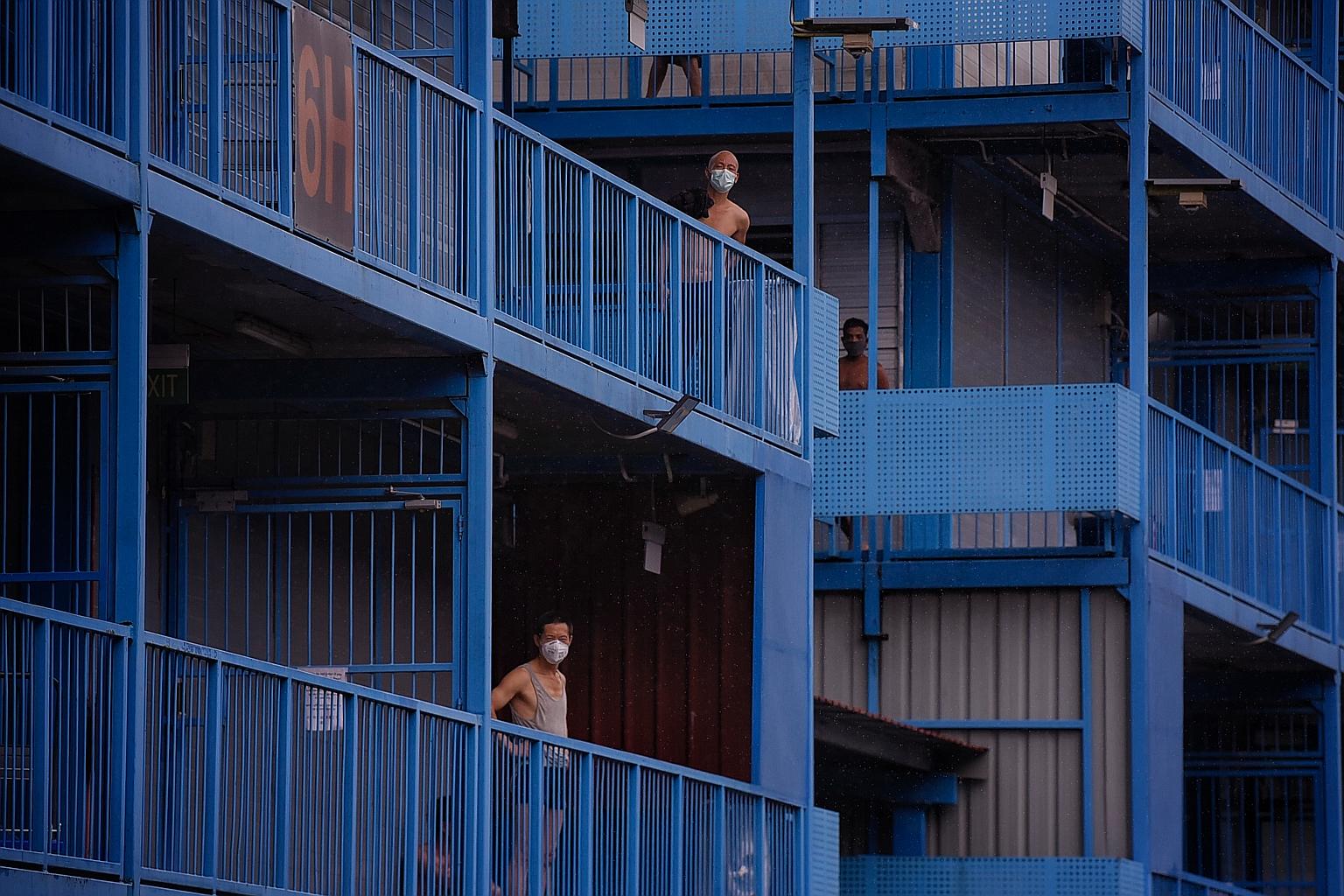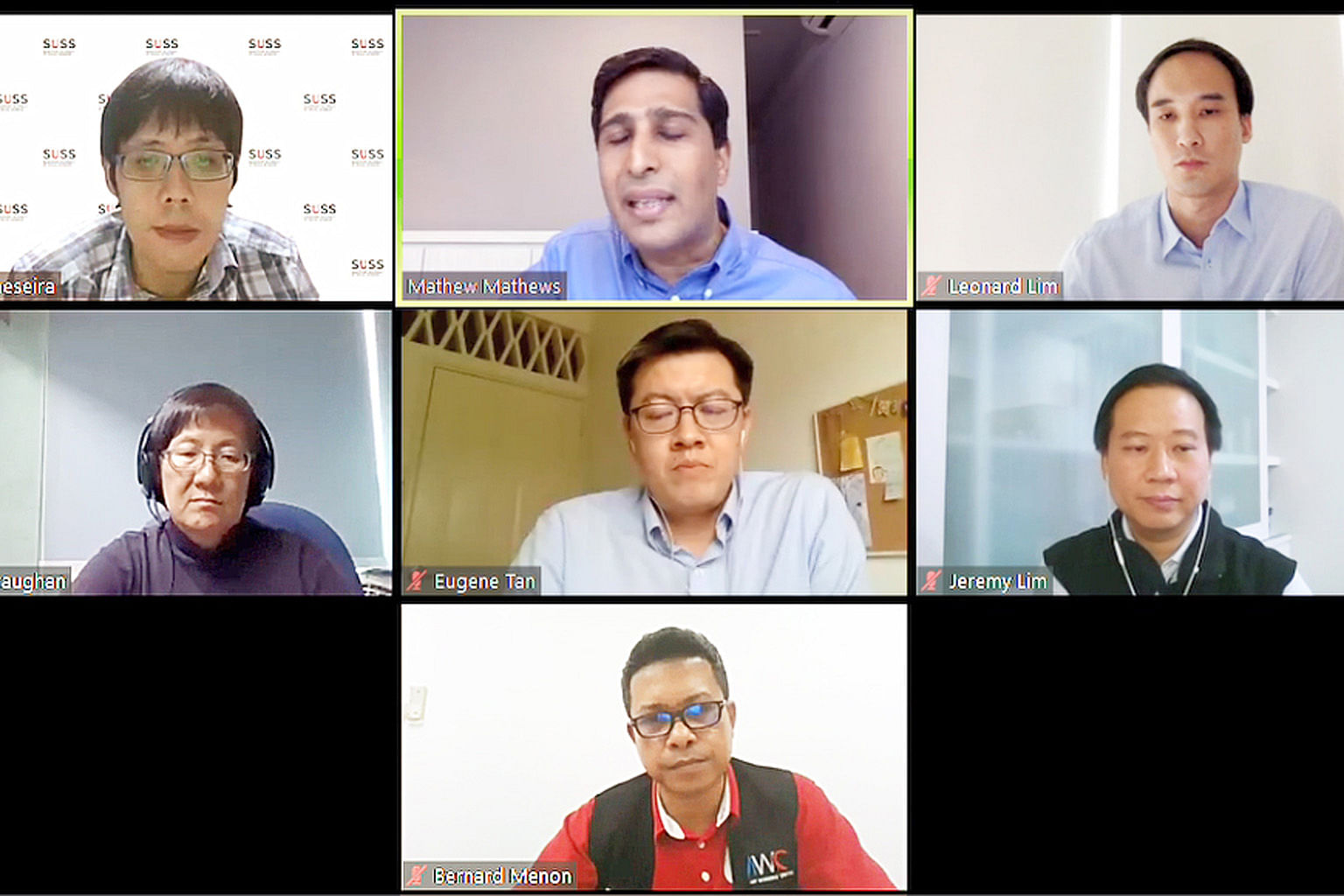Coronavirus: Bettering migrant workers' lives calls for whole-of-society effort, say experts
Sign up now: Get ST's newsletters delivered to your inbox

Migrant workers residing at S11 Dormitory in Punggol.
ST PHOTO: MARK CHEONG
Improving the wages and living conditions of foreign workers in Singapore requires a whole-of-society effort. Not only must the Government take the lead in making structural changes, but Singaporeans, too, must change their us-versus-them mindset, said analysts.
Dr Jeremy Lim, co-director of global health at the National University of Singapore's Saw Swee Hock School of Public Health, said on Wednesday that the Government's framing of Covid-19 as two separate outbreaks - one in foreign worker dormitories and the other in the community - was a "defensible" one from a public health perspective.
That is because different strategies were used to tackle each outbreak, he added.
Dr Lim was speaking at an online forum organised by the Institute of Policy Studies titled "Migrant workers: Policy responses and lessons from the Covid-19 pandemic".
He noted that as infection numbers spiked in dorms and overwhelmed the ability of their operators as well as employers to contain the disease, the Government intervened swiftly. It brought in the army and police, and set up community care and recovery facilities for workers with mild symptoms.
SHIFT IN MINDSET NEEDED
But a whole-of-society mindset change is needed for the support to be sustained, said Dr Lim.
"The mental model we have traditionally taken is that foreign workers are part of the community but separate; we accept there should be different standards (for them).
"But it is clear now that the previous paradigm, of relying on the employers and dorm operators alone, cannot work in a crisis of this scale and complexity," he added.
Professor Paulin Straughan, Singapore Management University (SMU) sociologist and dean of students, said many Singaporeans object to migrant workers living among them, citing health and safety concerns.
Mr Bernard Menon, executive director of the Migrant Workers' Centre, pointed out that despite a surge in public discourse after the SMRT bus drivers' strike in 2012 and the Little India riot a year later, public memory has been short-lived.
SMU law professor Eugene Tan said Singaporeans have become used to the benefits of cheap and transient foreign labour. "There has not been enough focus on the values that make up the kind of Singapore we want our children to grow up in," he added.
STRUCTURAL CHANGES
Nominated MP Walter Theseira, an economist at the Singapore University of Social Sciences, said Singapore's economy has, over time, become significantly more dependent on foreign labour.
Without cheap foreign workers, the cost of goods and services here could rise sharply, he said, adding that if the Government implements more generous minimum wages and living conditions, some types of migrant workers and industries could become economically non-viable.
Agreeing, Mr Leonard Lim, country director at political consultancy Vriens & Partners, said low business costs remain a strong reason for companies to be located here.
There are consequences to relying less on foreign workers, he added. "Public transport and housing infrastructure will take a longer time to build - HDB flats and MRT lines could take longer to come on stream."

Speakers at an online forum on Wednesday on migrant workers, (top row, from left) Nominated MP and economist Walter Theseira, moderator and Institute of Policy Studies senior research fellow Mathew Mathews, Vriens & Partners country director Leonard Lim, (middle row, from left) sociologist Paulin Straughan, law professor Eugene Tan, NUS Saw Swee Hock School of Public Health co-director of global health Jeremy Lim, and (bottom row) Migrant Workers' Centre executive director Bernard Menon.
Dr Lim said it is unrealistic to expect the private sector to do more, as its primary concern is profit and loss. The Government should lead in making the necessary structural changes, he added.
Prof Theseira argued that the process is about collective responsibility and must also reflect the popular will. "The reason change doesn't happen is that it's in Singaporeans' economic self-interest not to - there is a large group who benefits from low-cost labour."
But there is reason to be hopeful, Prof Theseira said, as new developments owing to Covid-19 - such as remote working - are rapidly eroding the benefits of having a huge pool of foreign labour.
"If one can get away with more remote working, why do expatriates need to be sent to Singapore, as this is more expensive? So the need to have so many foreign workers serving the population comes into question," he added.
"Plus, some industries may be suppressed for some time (due to the pandemic), so there is an opportunity to restructure."
Ultimately, said Mr Menon, it takes two hands to clap and society must be more accepting. "We tried to rally the migrant workers to interact and hopefully integrate with Singaporeans, but learnt quite a painful lesson over time that integration is a two-way street."


